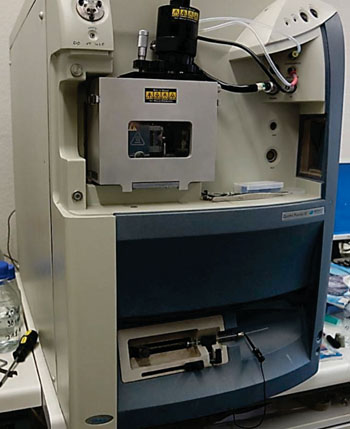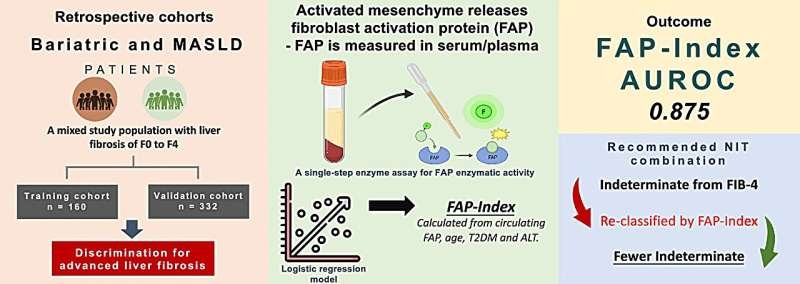Novel Blood Test Detects Early Stages of Osteoarthritis
By LabMedica International staff writers
Posted on 09 Nov 2016
There is currently no blood test for early-stage osteoarthritis, a degenerative joint disease where the cartilage that eases and cushions movement breaks down, causing pain, swelling, and problems moving the joint.Posted on 09 Nov 2016
Morbidity in arthritis could be markedly decreased if early-stage arthritis could be routinely detected and classified by a clinical chemistry test. A blood test has been developed that can provide an early diagnosis of osteoarthritis and distinguish it from rheumatoid arthritis and other inflammatory joint diseases.

Image: The Quattro Premier XE tandem quadrupole mass spectrometer (Photo courtesy of Waters).
Scientists at the University of Warwick recruited 225 participants. These included patients with knee joint early-stage and advanced osteoarthritis and rheumatoid arthritis or other inflammatory joint disease, and healthy volunteers with no joint problems. There were 46 patients with early osteoarthritis (eOA), 45 with early rheumatoid arthritis (eRA), and 42 with inflammatory arthritis other than RA (non-RA), and 17 patients with longstanding severe, advanced OA, (aOA) and 22 with advanced RA, (aRA).
Synovial fluid from the eOA study group was collected concurrently and venous blood and synovial fluid samples for eRA, non-RA, aOA and aRA study groups were collected in the non-fasted state. The contents of oxidation, nitration and glycation adduct residues in plasma/serum and synovial proteins were quantified in exhaustive enzymatic digests by stable isotopic dilution analysis by liquid chromatography–mass spectrometry (LC-MS/MS), with correction for autohydrolysis of hydrolytic enzymes using an Acquity UPLC system with a Quattro Premier tandem mass spectrometer (Waters, Manchester, UK). Anti-cyclic citrullinated peptide (Anti-CCP) antibody positivity was assessed by automated enzymatic immunoassay (EliA CCP; Phadia, Uppsala, Sweden).
The team found some patterns of damaged amino acids in samples from patients with early and advanced osteoarthritis and rheumatoid arthritis that were markedly lower in samples from the healthy volunteers. Using sophisticated bioinformatic computer methods, they developed algorithms, based on 10 damaged amino acids that can diagnose early-stage osteoarthritis, rheumatoid arthritis, and non-rheumatoid arthritis. The new blood test has a relatively high sensitivity and specificity for early-stage diagnosis and typing of arthritic disease, and in the case of early-stage osteoarthritis, the scientist found the blood test had a sensitivity of 92% and a specificity of 90%, which compares favorably with current techniques.
The authors concluded that a combination of estimates of oxidized, nitrated and glycated amino acids with hydroxyproline and anti-CCP antibody status in plasma provided a biochemical test of relatively high sensitivity and specificity for early-stage diagnosis and typing of arthritic disease. The study was published on October 27, 2016, in the journal Arthritis Research & Therapy.
Related Links:
University of Warwick
Waters
Phadia














